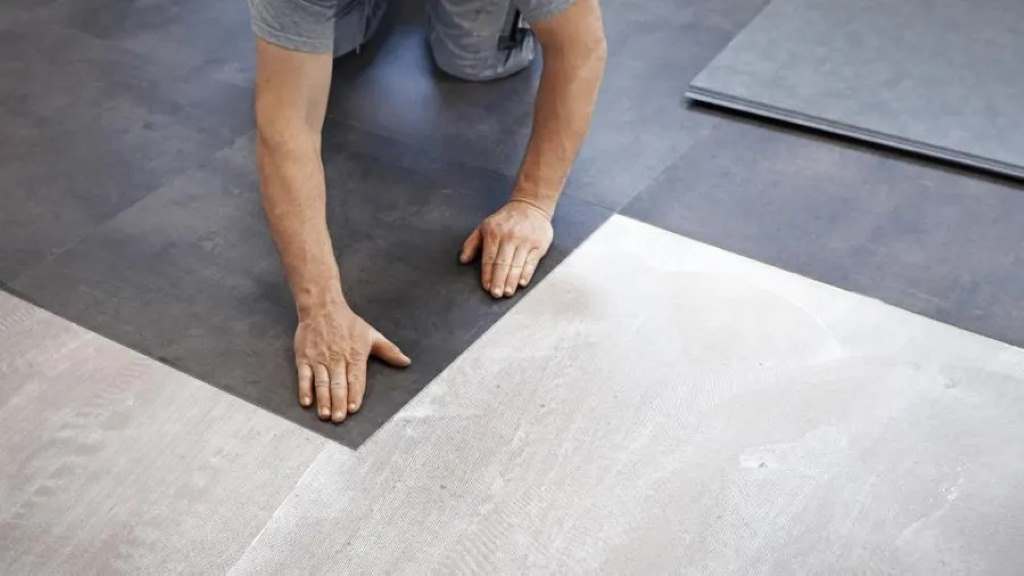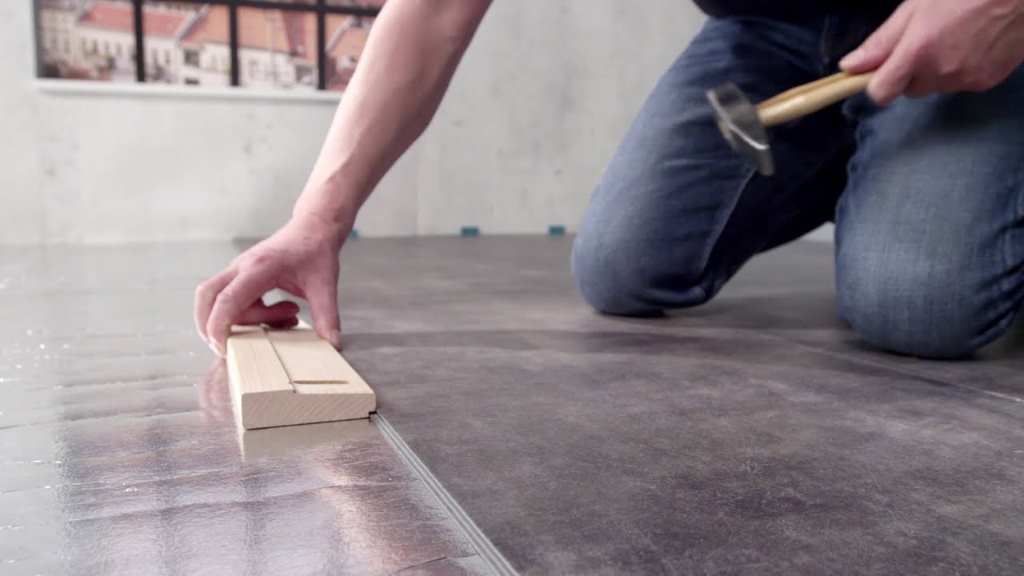Understanding the Drawbacks of Vinyl Flooring: A Balanced Perspective

Vinyl flooring has exploded in popularity due to its attractive looks, water resistance, and budget-friendly price tags. It’s a versatile option that can convincingly mimic hardwood, stone, or tile. Still, before installing vinyl flooring throughout your home, it’s vital to weigh its potential disadvantages. Let’s delve into the not-so-perfect side of vinyl to make a well-informed decision.
1. Environmental and Health Concerns
- VOCs (Volatile Organic Compounds): New vinyl flooring can release VOCs, chemicals that off-gas into the air. These compounds may cause short-term health effects like headaches, dizziness, and respiratory irritation. While VOC levels diminish over time, they can be a concern for those with sensitivities or respiratory issues. Look for low-VOC or VOC-free vinyl flooring options to minimize this.
- Phthalates: Phthalates are a type of plasticizer used to make vinyl flexible. Some phthalates have been linked to potential health risks, particularly in young children. While many manufacturers have moved towards safer phthalate alternatives, it’s always good to double-check and choose phthalate-free options when possible.
- Sustainability: Vinyl is made from polyvinyl chloride (PVC), a non-renewable plastic. Its production contributes to environmental pollution and it’s generally difficult to recycle. If sustainability is a priority, consider more eco-friendly flooring options like natural linoleum, cork, or responsibly sourced hardwood.
2. Durability and Damage
- Scratches and Dents: While vinyl is relatively durable, it isn’t immune to damage. Heavy furniture, dropped objects, and pets can leave scratches or dents on the surface. Using furniture pads and avoiding dragging heavy items can help minimize wear and tear.
- Fading: Direct sunlight can cause vinyl flooring to fade and discolor over time. This is something to be mindful of in sun-drenched rooms. Opt for fade-resistant vinyl or use blinds and curtains to control sunlight exposure.
- Difficulty in Repair: Unlike materials like hardwood, vinyl cannot be sanded and refinished. Deep scratches or gouges often necessitate replacing the affected section of flooring, which can be a hassle.
3. Installation and Removal Considerations
- Subfloor Imperfections: Vinyl flooring is thin, so it amplifies any imperfections in the subfloor beneath it. Proper subfloor preparation is crucial for a smooth and long-lasting vinyl floor. This can add extra time and cost to the installation process.
- Difficult Removal: Removing vinyl flooring, especially if glued down, can be messy and time-consuming. The process could damage the subfloor, leaving residue and making it challenging to switch to a different type of flooring in the future.
4. Other Potential Concerns
- Less Realistic Appearance: Although luxury vinyl plank (LVP) or luxury vinyl tile (LVT) does a great job imitating natural textures, it may still lack the exact feel and depth of real wood or stone.
- Lower Resale Value: Unlike hardwood, which can increase a home’s resale value, vinyl is unlikely to significantly contribute to your home’s overall appraisal.
Is Vinyl Flooring Right for You?
The decision to install vinyl flooring ultimately depends on your priorities, budget, and lifestyle. Here’s a quick recap to help you evaluate:
When Vinyl Might Be a Good Choice:
- You’re working with a limited budget.
- You want a waterproof flooring option for bathrooms, kitchens, or entryways.
- You need a durable and relatively low-maintenance floor.
- You like the design versatility that vinyl offers.
When You Might Want to Reconsider:
- You prioritize eco-friendly materials.
- You want a floor that can be repaired and refinished over many years.
- Concerns about indoor air quality are a critical factor.
- You’re seeking flooring that will increase your home’s resale value.
Making an Informed Decision
Do your research, ask for samples, and weigh the trade-offs based on your specific needs. Don’t hesitate to ask flooring retailers about low-VOC options, phthalate-free vinyl, and professional installation practices to ensure the best possible experience with your chosen flooring!

